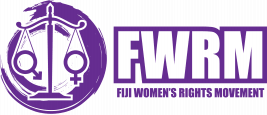The Fiji Women’s Rights Movement (FWRM) is a multi-ethnic and multicultural organisation working for the elimination of discrimination against women through institutional reform and attitudinal change. It bases its work on the promotion of feminism, democracy, good governance and human rights.
On 12 and 13 February, the FWRG held a regional workshop on “How to be responsive and transformative on gender issues”, in which representatives from 8 countries in the region participated. FWRM’s executive director, Nalini Singh, stated that “Formation is important to strengthen local capacities in gender, sharing the knowledge acquired over the years working in the gender space. Knowing how to do gender analysis and analyse important national documents, such as annual country budgets, is essential for applying a gender perspective to government programmes and policies. This formation enables participants to carry out gender analysis in their day-to-day work and thus contribute to gender-equitable programme and policy outcomes”. Thus, the FWRG aims for the training to enable participants to learn to understand what gender analysis is, how to carry it out, and how to “read” national budgets through a gender lens. One of the participants, Jean Nootai from Cook Islands said, “The workshop not only equipped me with crucial tools, but also fostered an environment where participants from diverse non-violent contexts shared their experiences, enriching our learning journey. It is imperative to continue such initiatives in our region…”.
One of the greatest challenges to overcoming gender-based discrimination is precisely the difficulty of identifying the various ways in which it affects everyday life, not only in terms of behaviour and forms of relationships but also in terms of laws, policies, programmes and services, established and designed without taking into account a gendered look. This absence eliminates the real possibility for all these instruments to include women, girls and the LGBTIQ+ population.
“We teach our people how to apply a gender perspective to policy-making to understand better what people need and to facilitate the right answer. That is why we facilitate this kind of formation. We hope that these participants from the non-violent region can come back and share ways in which we can all be gender sensitive and conduct gender analysis and be transformative in addressing the needs of our people,” Singh added.










